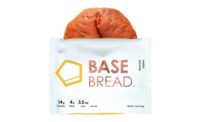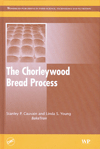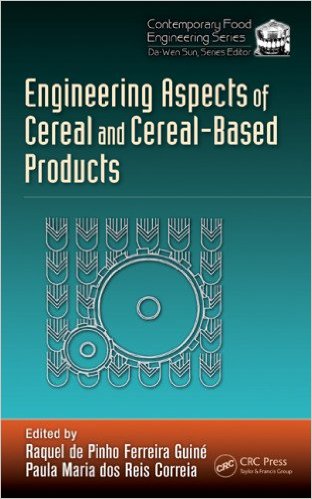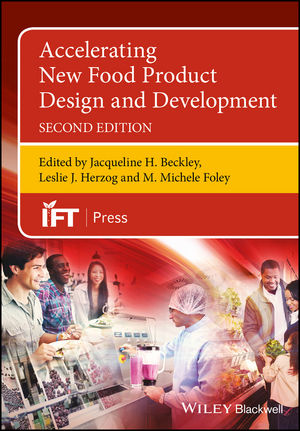Health Q&A
Straight Talk on Saving Babies
The Grain Foods Foundation has enlisted Dr. Judith Reichman to further educate women on the benefits of consuming foods that contain folic acid to help prevent birth defects.
To patients at her Los Angeles practice, Dr. Judith Reichman is their confident on infertility and other gynecological matters. To women across America, she’s one of the most recognized experts on women’s health issues.
Dr. Reichman is the author of several best sellers, including “I’m Not in the Mood: What Every Women Should Know About Improving Her Libido” and “Relax. This Won’t Hurt: Painless Answers to Women’s Most Pressing Health Questions.” A frequent contributor to programs on CNN, ABC and NBC, including the “Today” show, she’s probably best known as the writer and host of PBS’ acclaimed two-part series: “Straight Talk on Menopause with Dr. Judith Reichman.”
For the baking industry, she’s now the resident expert promoting the new Folic Acid for a Healthy Pregnancy Seal, which was developed by the March of Dimes and the Grain Foods Foundation to promote the increased consumption of folic acid-rich foods among women of childbearing age.
Launched during Folic Acid Awareness Week in early January, that seal will be featured on products at retail to help women easily identify grain products such as white bread that are enriched with folic acid. It’s all part of the foundation’s broader campaign, “Ten Years of Saving Babies,” which celebrates the decade-long anniversary of folic acid fortification in enriched grain foods.
Snack Food & Wholesale Bakery magazine recently asked Dr. Reichman to talk about women’s issues and the promotion of foods containing folic acid. Here’s what she had to say:
Snack Food & Wholesale Bakery: Why did you decide to become such an outspoken expert on women’s health issues?
Dr. Judith Reichman: I love the adjective “outspoken.” I was trained as an obstetrician and gynecologist in the ‘70s and was astounded at the lack of information afforded to most women. I continued in academic practice for many years and, as such, would lecture medical students and other physicians. Upon entering private practice here in Los Angeles, I was given the opportunity to talk to my patients (I prefer to think that I didn’t lecture them) and truly enjoyed the interaction. It’s has been a privilege to be able to explain and translate relevant medical information while delivering their babies and overseeing their reproductive health. But I can personally see and talk to a limited number of women. Writing books and appearing on PBS specials and the “Today” show has allowed me to share so much more. We all deserve to become knowledgeable about our health. If I can help interpret the myriad studies and provide medical information for as many women as possible, I feel I have fulfilled my goal as a physician.
SF&WB: What are some of the most critical women’s health issues still not being addressed by the media or health experts?
Dr. Reichman: The need for pre-conception care, the debunking of the “latest information” on fast weight-loss programs, understanding what all those herbs and what I call “shmerbs” really do and don’t do, managing perimenopausal symptoms (menopause is a hotter topic), and explanations of what evidence based medicine and health care is all about. Add to that issues that relate to gastrointestinal health (the gut seems to be our last taboo) and urinary incontinence.
SF&WB: Why did you sign up for the Ten Years of Saving Babies campaign?
Dr. Reichman: Because so many women don’t understand what is meant by “enriched grain,” where it’s found or why the FDA mandated folic acid fortification ten years ago. I have seen the horrendous impact of neural tube defects; if I can help prevent this fetal and family tragedy in any way, then I will try to do so. In fact, I am donating my fee to Save the Children.
SF&WB: What is the message that the campaign plans to get out to women?
Dr. Reichman:That nutrition and enriched grains play an important role in diminishing this type of fetal malformation and, ultimately, all women of reproductive age need to increase their folic acid intake.
SF&WB: Who is your target audience? Which women should be increasing their consumption of folic acid, and why?
Dr. Reichman: Women of reproductive age — that means from 15 (although as a mom, I would like to think this begins in the late 20s) until the late 40s. New evidence also suggests that folic acid intake helps reduce certain medical conditions such as stroke and dementia in later years.
SF&WB: How important is it to consume folic acid before pregnancy? What’s the easiest way to incorporate folic acid into your diet, and how much should you be taking to prevent neural tube birth defects?
Dr. Reichman:: Folic acid is an important vitamin, required for the formation of the neural tube in the embryo. Since this occurs in the first three weeks of fetal development, timing of folic acid intake is critical. By the time a woman’s period is a week late and she takes a pregnancy test (that means three weeks after conception), the neural tube, which becomes the spine and brain, has already been formed. Starting to ingest folic acid at this point (“Oh, I’d better take pre-natal vitamins”) is actually too late to effect the process of neural tube development. Since the FDA mandated folic acid fortification, neural tube defects, including spina bifida, have declined by 36% in Hispanics and 34% in white, non-Hispanics. It’s clear that the easiest way to incorporate folic acid in the diet is through enriched grains (white breads, cereals, pasta, tortillas). Obviously, actual vitamin supplementation would be effective, but only 33% of women take multivitamins containing folic acid at the appropriate time.
SF&WB: In previous campaigns, the Grain Foods Foundation targeted Hispanic women, who as a group tend to have a higher incidence of children born with birth defects. Why is that the case?
Dr. Reichman: Yes, they do have a higher incidence or babies born with neural tube defects, so targeting them makes sense. It’s not clear why the risk of this malformation is higher in the Hispanic population; perhaps both nutritional and genetic factors are involved. But these women can improve their levels of folic acid and significantly lower that risk with the enriched grains found in white bread and tortillas.
SF&WB: If you were writing a book about bakery products, folic acid and the prevention of birth defects, what would be a good title for it?
Dr. Reichman: Don’t Pass on the Dough! SF&WB





